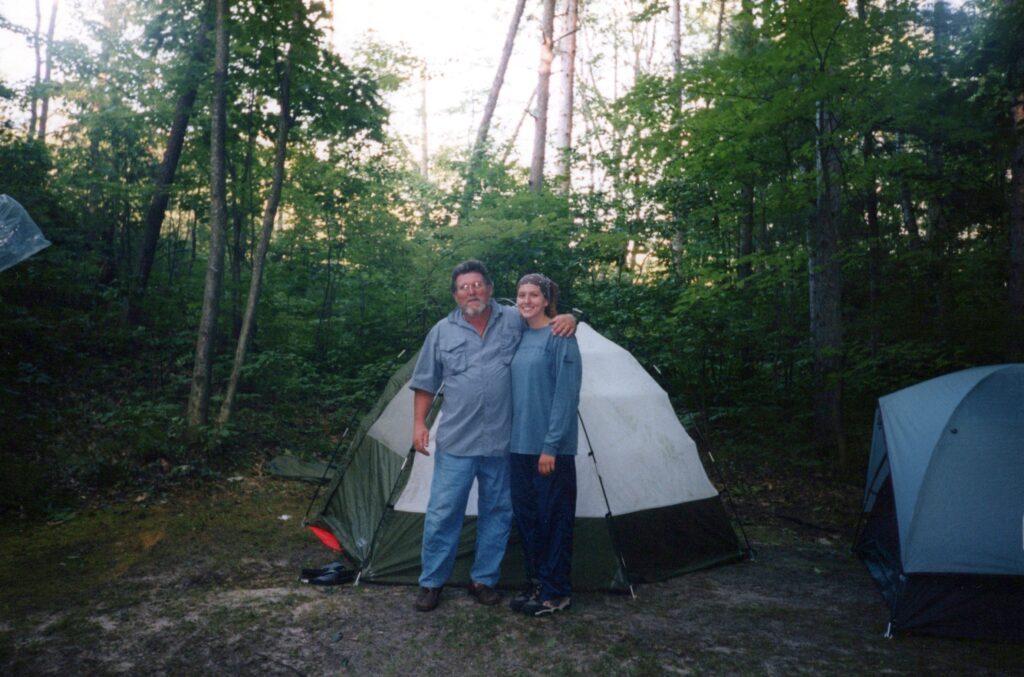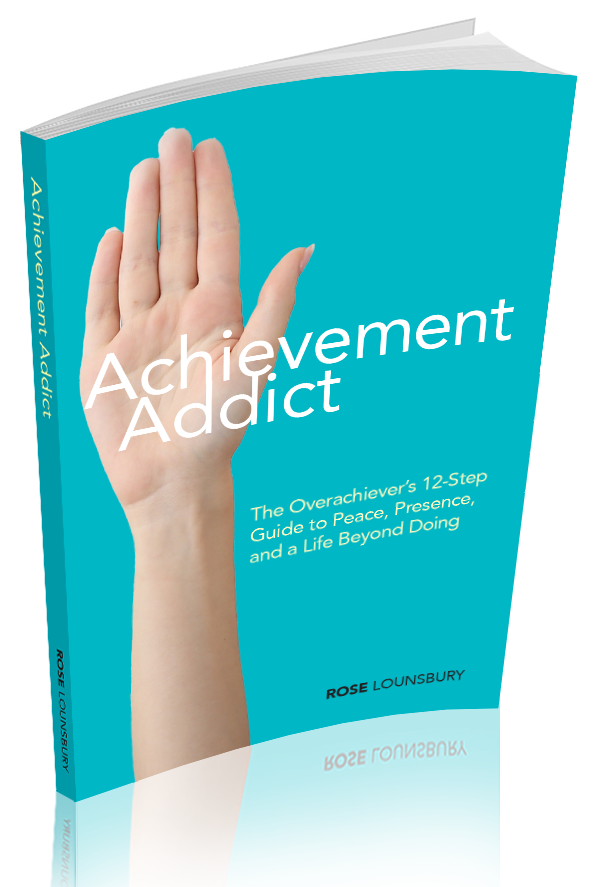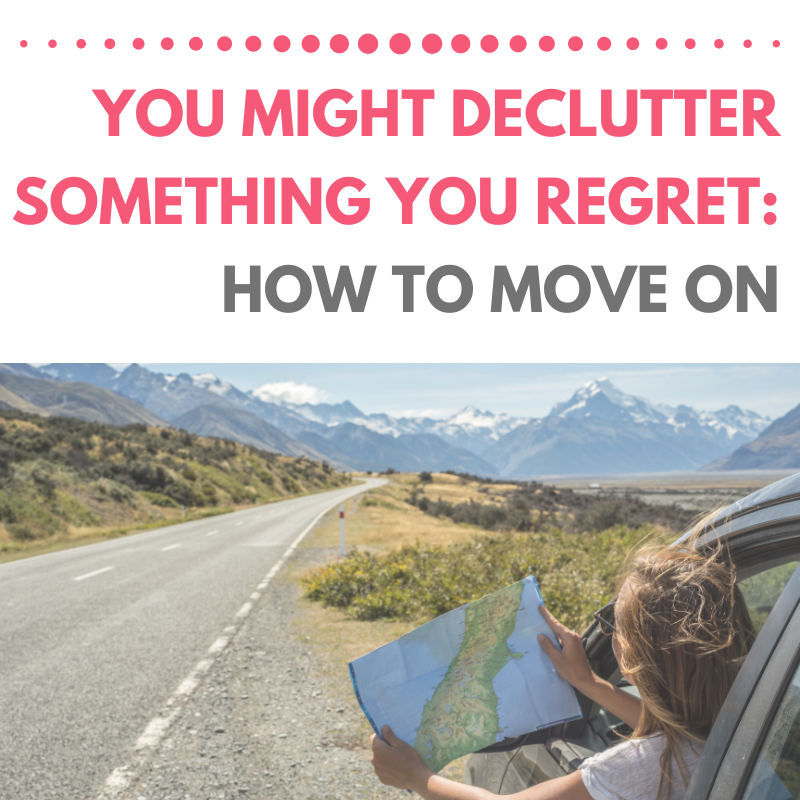Today I want to tell you about something I decluttered that I regret.
One of the things I often tell people when encouraging them to minimize their stuff is, “You won’t miss any of this!”
I’ve said it so much over the years, and only very recently have I come to believe that it’s not entirely true. Because only very recently have I lost someone close to me and experienced the deep pain of regret. For me, this is related to something I decluttered years ago.
I don’t believe it’s possible to lose someone you love without regret. We will regret things we said or didn’t say, things we did or didn’t do. Regret is normal. It’s an attempt to feel less pain.
We think, “If I’d just said this or not done that, I wouldn’t hurt so much.” This is not true, but at the time it feels so true. We see that deed or those words as some kind of magic balm that will make our hearts stop hurting.
Regret is seductive because it is problem-solving in the past tense. It’s a clear 20/20 backward glance that says with utmost confidence, “There! That’s the answer! That would make all this awfulness go away.”
There’s only one teeny tiny problem, written in the fine print at the bottom of this crystal clear snapshot into the past: It’s impossible. 100% bonafide impossible. Not even Tom Cruise could succeed at this mission. It’s an absolute no go.
We can’t change the past. We can’t go back and undo or redo or unsay or resay. It is what it is, locked behind the impenetrable glass of time. Static.
Therein lies another sort of pain: the pain of seeing a “solution” but knowing you can never have it. It’s like that Greek myth of the guy who was punished for eternity by being forced to stand in a pool of water beneath a fruit tree. That doesn’t sound so bad, but the fruit was always just out of his grasp and the water always receded before he could take a drink. He spent eternity in hunger and thirst, the answers to his agony always visible but out of reach.
That guy’s name? Tantalus. From which we get the word “tantalizing”.
Regret is tantalizing. It’s seductive. It calls to us. But it can never, ever satisfy us. Because what we want–a redo, a quick slip into the past to make it right–we can never have.
It’s a form of torture. But unlike Tantalus, who experienced his punishment at the hands of the almighty Zeus, regret is a punishment we inflict upon ourselves.
It goes like this:
I feel bad.
Wait, there’s a solution! (But you can never have it.)
Now I feel worse.
And repeat.
I bet by now you’re really wondering what I regret decluttering. I’ve led up to it with all my deep thoughts on regret and Greek mythological figures not because I wanted to build some type of literary suspense, but because admitting it still feels shameful. And painful. Like most regrets.
My dad was a letter writer. Even in later years, when he finally learned to text and (sometimes) send email, he preferred to put pen to paper and send messages through the mail.
He was a wordsmith. Creative, funny, clever with a turn of phrase.
I like to think that I got some of that from him.
When he died unexpectedly at the end of last year, I looked forward to opening my tub of memorabilia in my attic and rereading some of his old letters. I knew he’d sent me many over the years, while I was in college, when I studied abroad. Even when I was grown with my own kids, every once in a while a letter would show up in my mailbox, written in his signature small handwriting. I looked forward to rereading his words, which I hadn’t revisited since he’d sent the letters originally.
When I opened that tub in the attic I found… One. One letter. The only one I’d saved. One he’d written to me when I was 14 years old at summer camp.
One. Out of dozens.
How minimalist of me.
How devastating.
The pain I felt is not easy to describe. I wept more deeply about the loss of the letters than I did at my dad’s funeral.
Because the letters were my fault.
I was the one who tossed them casually in the trash. Who thought, in her minimalist fervor, “Oh, you only need one! Who’s going to ever want to reread these? You’ve not reread them in all the years you’ve had them. You won’t miss them. Look how decluttered your one tub of memorabilia is now! Take a picture and post it on your blog!”
I seethed at this flippant image of my past self, going through her memorabilia in the attic one Saturday morning years ago. I judged her every careless thought, every thoughtless action.
She didn’t know loss.
She didn’t know how much some things mattered after a person is gone.
She was stupid.
I hated her.
I regretted every blog post I’d ever written. Every podcast interview I’d ever done. My TEDx talk. My book. All of it aimed at telling people to let go, when now all I desperately wanted was to hold on to something, anything with my father’s words on it. I wanted to spend hours rereading every word he’d ever written to me because I felt like that would be the comfort I was looking for, the magical words that would take the pain away.
It was, to put it bluntly, a rough time.
It’s still really hard to write about.
At this point you’d probably like me to write a neat list of 5 things I learned from this experience so that you never have to regret letting go of anything.
I can’t do that. And I won’t try.
Because here’s the truth… I can’t save you from regret. I’ve come to realize that at some point, we’re all going to regret something. It might be something you said or didn’t say. Something you did or didn’t do. Something you decluttered.
We will all–at some point in our lives–look back at the past and wish we’d done it differently.
I will always wish I had my dad’s letters, because I will always wish I had my dad. But that doesn’t mean I can’t have joy.
A few nights ago I was grieving the letters again. I sat down on the floor in my bedroom and reread the one letter, carefully, reverently. I’d memorized almost every word. I folded the letter back into its envelope. Gently, delicately, I set it back on the bedroom shelf where I keep it next to a picture of my father. I looked at the photograph of my dad and said, through tears, “Dad, I’m sorry I threw away your letters. I love you.”
I don’t really believe the dead can talk to us. I don’t hear my father’s voice out loud. But sometimes I feel him talking to me, like an inner voice that sounds like him. This was one of those moments. From within I felt him say, “It’s okay, Rosie. Go to Canada.”
Yeah, I know that sounds weird. Let me explain.
This summer Josh and I have planned an epic road trip to Canada with our kids. We’ll drive all the way across the US, camp along the way, see everything, and eventually end up on Vancouver Island, where we’ll live for a month in an AirBnb and work remotely, then turn around and drive the whole way back.
It is adventurous.
It is exactly the type of thing my dad loved.
When we told my dad about the trip, he was so excited.
“Oh wow! I always wanted to do that when I was a kid,” he said. “I remember friends of mine that took trips like that. You’re going to have a great time.”
I distinctly remember him pausing and adding, “I wish I could go with you.”
He suggested routes. He offered to lend us the teardrop camping trailer he’d built himself.
My dad was a maps guy. The basket next to his chair was filled with Rand McNally atlases and backroad guide books. He loved nothing more than the open road, discovering the small things along the way.
Go to Canada.
I realized, at that moment, the message my dad was sending me… Don’t spend your life reading dusty letters in the attic. Live it. See everything. Do everything. And think of me.
The way I honor my dad is not by keeping every letter he ever wrote me. It’s not by rereading them and scanning them and uploading them to the cloud so I can save them for posterity.
I honor him by how I live my life. I honor him by my actions.
We honor our loved ones not by keeping everything they ever gave us. We honor them by how we live our lives after they are gone.
Okay, Dad. I’ll go to Canada. I’ll pack up the kids and see every damn thing along the way. I’ll even pack an atlas for when the GPS quits and we need to take a backroad. I’ll put my feet up on the dash and roll the windows down and see the whole great United States of America. My wheels on the pavement, a whole country outside my window. C’mon, Dad, you’re coming with me. Let’s go together.










